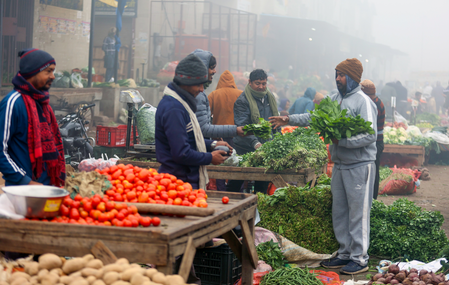New Delhi, 13 September (IANS). According to a latest report, India’s retail inflation is estimated to be stable at 3.1 percent in FY 26 due to the falling prices of food items and the effect of recent deductions made in GST rates.
According to the Bank of Baroda (BOB) report, there may be a period of deflation in the Indian economy in the coming days as the benefits of government assistance through low indirect tax rates are expected to reach customers.
CPI inflation increased to 2.07 percent in August, which was 1.61 percent in July. Food prices continued to fall for the third consecutive month, which was 0.7 percent lower on an annual basis, due to the low price of vegetables, pulses and spices. Food inflation is expected to continue to be softened due to better sowing and better arrival of rice and pulses as well as favorable supply dynamics.
The bank said that the Chief Consumer Price Index (CPI) is getting expected relief from soft food inflation.
Even in the coming days, better sowing of rice and pulses, especially better than normal monsoon, and comfortable reservoirs will be helpful in decreasing food inflation.
In addition, shifting most of the food and beverages and main inflation items to the lower GST slab is likely to reduce inflation.
The report stated that food inflation has started moving above a very lower level, including statistical low-level effects.
Fuel and light inflation figures were 2.4 percent on an annual basis, and a gradual increase occurred due to some increase in kerosene prices.
Earlier, according to a report by SBI Research, rates in October are unlikely to be cut as inflation figure in August is slightly higher than 2 percent. If the first quarter growth rate and estimated data of the second quarter are taken into consideration, the interest rate cut in December is also difficult.
-IANS
SKT/















